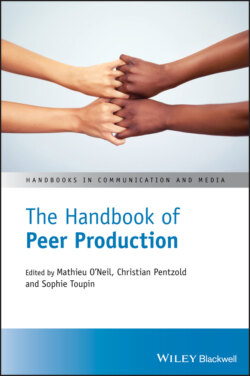Читать книгу The Handbook of Peer Production - Группа авторов - Страница 55
1 Introduction
ОглавлениеIn 2005, Michel Bauwens published “The Political Economy of Peer Production.” In this seminal article he discussed the principles, characteristics, basic structures, and the future of the then nascent ecosystem of peer production. I (Vasilis) stumbled upon this article, and upon Michel, in 2007 as a postgraduate student at the University of Amsterdam. “The Political Economy of Peer Production,” along with Yochai Benkler’s work, have had a major impact on my understanding of peer production. Benkler had first observed the seeds of an emerging mode of production in his 2002 article “Coase’s Penguin, or, Linux and ‘The Nature of the Firm’.” He provided the vocabulary for a new field of scholarship. Three years later, building on Benkler’s work, Michel developed these insights in his article.
In this chapter, I revisit Michel’s 2005 article, adopting, expanding, and refining the operational concepts – or “grammar” – he used to define peer production projects and the institutional ecosystems which sustain them. This chapter is therefore situated, like much of the work of the P2P Foundation which Michel founded in 2005, between the worlds of activism and academic research. After almost 15 years, it is challenging to see what has changed and what has remained the same. In 2005, Wikipedia was four years old, Mozilla Firefox was three years old, the Apache HTTP Server Project was ten years old, and most of the currently prominent open hardware projects did not exist. Michel is cited as a co‐author of this chapter because a considerable amount of it is based on his work. He also reviewed the final version. Moreover, this chapter builds upon our latest book published in 2019, co‐authored with Alex Pazaitis. However, the truth is that every intellectual product is not the work of one human being, but rather the result of social production; a collective artifact. Nevertheless, for the sake of simplicity, we have compromised and cite two names as authors, though we are indebted to the global peer‐to‐peer community of practitioners, activists, and scholars.
